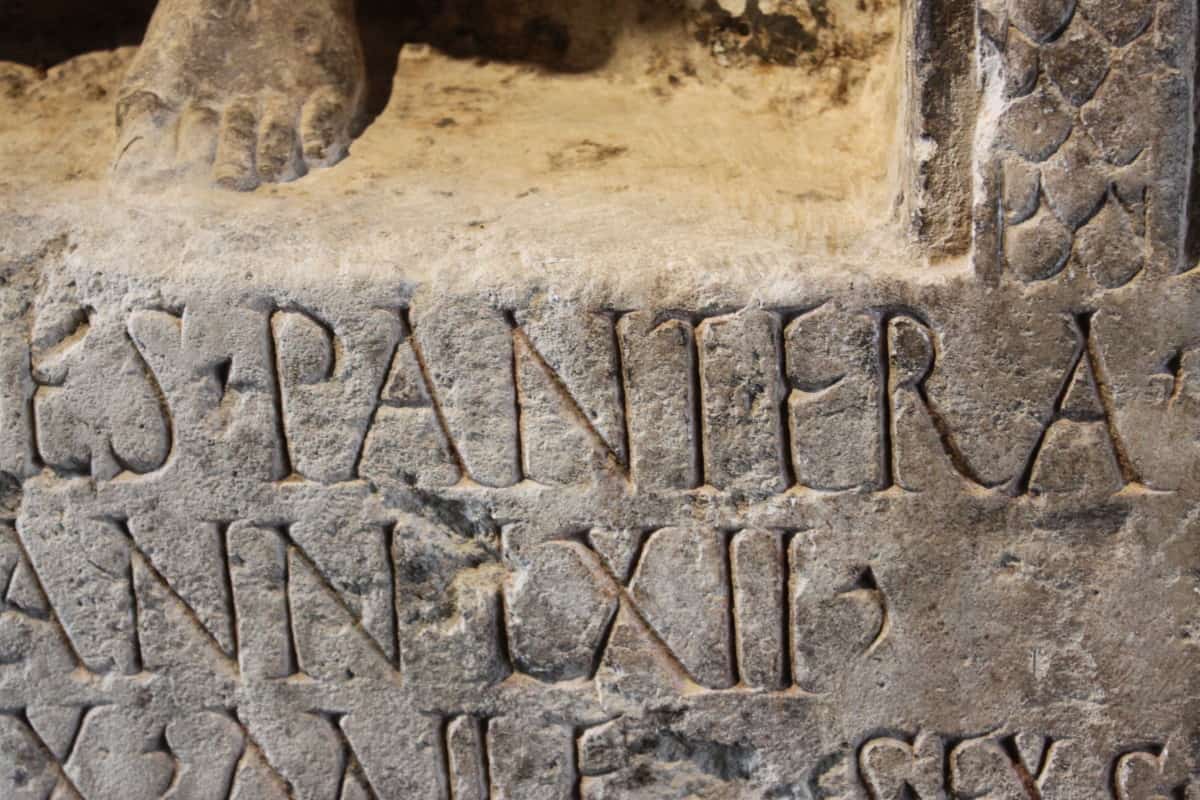As some of you know, and as I mention in my book, The Jesus Dynasty, the most commonly accepted explanation for the tradition that Jesus is “son of Pantera” is that the word pantera is a pun for the Greek word parthenos or “virgin” in Greek and not a “real name.” In other words, the Jewish enemies of Jesus were making fun of the idea of Jesus being the “son of a virgin” by called him the “son of a panther,” or a lusty animal.
I am amazed at how this explanation, which I consider to be wholly without any historical or linguistic basis, has become so widespread. I can’t tell you the number of reviewers of my book who have matter-of-factly pointed out, apparently Dr. Tabor is not even aware of the origin of this term and mistakenly thinks it might refer to an historical person! Even major scholars pass on the explanation as if the matter is settled. I think many of them have been influenced by Joseph Klausner, the Israeli/Jewish scholar whose book Jesus of Nazareth (published in Hebrew in 1929) was one of the earliest treatments of Jesus in the light of Jewish sources. As I have pointed out in previous posts on this Blog, as well as in my book, Adolf Diessmann in 1906 showed conclusively that the name “Pantera” is a real name, and further, that it was favored by Roman soldiers.

So the question arises–where did the pantera=parthenos explanation originate? I knew it was not ancient but I was not sure how far it went back since no one who uses it ever gives a source, but just passes it on as if it is self-evident. One of my former graduate students, Chad Day, who was independently working on Jewish traditions about Jesus in antiquity, passed on the following to me. I want to thank him for his good sleuthing work, though we are not sure we have yet arrived at the one person who first came up with the “pun” explanation. Here is what Chad Day reports:
The Parthenos pun explanation seems to go back at least to Nitzsch and Bleek (Nitzsch, K. I. “Appendix to Bleek.” Page 116 in Studien und Kritiken zur Theologie und Philosophie. Edited by J. Frauenstadt. Berlin: Voss, 1840). Nitzsch (Nitzsch, Karl Immanuel, 1787-1868) seems to be the one that influenced Joseph Klausner.I found this in Heinrich Laible’s “Jesus Christus im Talmud,” 1893. Interestingly, as one of the most rabid Christian apologists (as well as cunningly anti-Semitic) of the bunch of turn-of-the-century scholars commenting on Pantera, Laible finds Nitzsch’s argument about the Parthenos pun totally unconvincing, primarily on philological grounds. However, he does not mention whether this pun business was initiated by Nitzsch. I seem to recall in my recent reading that they did in fact receive this “explanation” from another source (and one which was probably apologetic in some modern fashion). You are quite right that such explanations do often become consensus overnight without any serious investigation, or in this case, perhaps philological logic.
Klausner does indeed take this “pun explanation” right from Nitszch and Bleek (see p. 24, Klausner, Jesus of Nazareth), thus propagating the idea even more widely, because his work was published in English in 1957, whereas the important work of Krauss and Strack on this issue was not available to the English-speaking world. Strack (Die Haretiker, 1913) is still only in German. Part of the Krauss volume of course was presented by Horbury just a few years ago, but the consensus explanation is now firmly implanted, especially since Klausner offhandedly remarks that Herford’s (1903) argument against this pun is unconvincing.
Another interesting aspect of this consensus has to do with the intended audience (and thus this speaks to bias) of Klausner’s now famous treatment of Jesus, namely that he wrote for a “Hebrew” audience. I would argue that this gave his formulations a certain credibility over against Herford’s lenghty (and sometimes anti-Semitic) treatment and conclusions. This business of “overnight” consensuses on some issues is grounded in decidedly unscientific (as well as unscholarly) assertions. Apparently Nitasch attempted to read the Greek panthera as the equivalent of Latin lupa–which means “she-wolf” or “prostitute,” thus making the epithet (or what we are calling the “pun”) “Son of the Prostitute.” Now Nitzsch (and later Klausner) wants to understand this pun as an anti-Christian slogan in response to the early Christian practice of calling Jesus by the title, “Son of the Virgin.” The problem is that we have not even one example of this practice in order to give warrant to the notion that such an expression became the basis for punning a counter-slogan? This “pun” seems to be thoroughly modern, and frankly, quite apologetic, from those who want to dismiss the “Jesus son of Pantera” designations as having any possible historical basis. Nonetheless, from Celsus through Epiphanius as well as the Rabbis (i.e., second through the fifth century), Panthera was understood as a name of a person, not merely a noun or adjective. In fact, some of the Church Fathers go to great lengths to “explain away” this name as it concerns the historical figure of Jesus. And Deissman, just 100 years ago, should have effectively laid to rest the notion that the name Pantera is a made-up pun.
Thanks to Chad Day for this information.









Comments are closed.